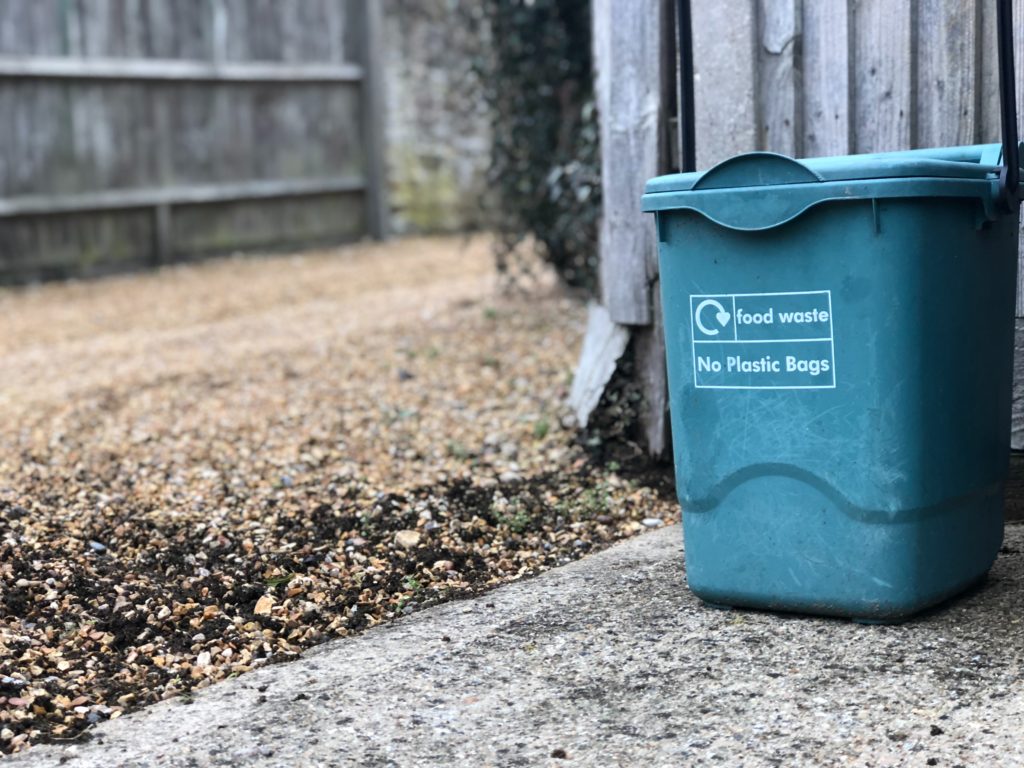Services / Waste Management / Compost Facilities & Exempt Registration
Compost Facilities
Compost facilities must register with the Ohio EPA by calling (614) 644-2621. There is no license or permit fee required for Class III and IV composting facilities. For Class I and II facilities, a solid waste license is required in addition to the registration. Contact Ohio EPA for more information.
Hamilton County Public Health Environmental Health Specialists also inspect these facilities to ensure proper waste acceptance, water management and material tracking.

- Class I solid waste composting facility – A facility where the owner or operator may accept yard waste, agricultural waste, animal waste, food scraps, mixed solid waste, bulking agents, additives, and authorized alternative materials. Required to obtain a permit-to-install application through the Ohio EPA. Additionally these facilities are required to maintain financial assurance.
- Class II solid waste composting facility – A facility where the owner or operator may accept yard waste, agricultural waste, animal waste, food scraps, bulking agents, additives, and authorized alternative materials. Additionally these facilities are required to maintain financial assurance.
- Class III solid waste composting facility – A facility where the owner or operator may accept yard waste, agricultural waste, animal waste, bulking agents, and additives.
- Class IV solid waste composting facility – A facility where the owner or operator may accept only yard waste, bulking agents, and additives limited to urea and bacterial or fungal inoculum.
Registered Class IV Facilities:
- Amberley Village
- City of Reading
- City of Wyoming
- Columbia Township
- Evans Landscaping **
- Granny’s Garden
- H. Hafner & Sons **
- NPK**
- Sycamore Township
- Village of Fairfax
- Village of Glendale
- Village of Greenhills
** = Accepts yard waste from the public
The following activities are exempt from Ohio EPA’s rules regulating compost operations provided that specific conditions are met:
Exemption for residential compost
- Composting of solid wastes generated within a single-family residence and disposed of or utilized on the premises where generated in a manner that does not create a nuisance or health hazard.
Exemption for less than 500 sq ft of compost area
- Aggregate area does not exceed 500 sq ft.
- Operate in such a manner that noise, dust, and odors do not constitute a nuisance or health hazard.
- Operations do not cause or contribute to surface or ground water pollution.
Exemption for agricultural operations
- Generated from agricultural operations as defined in section 1.61 of the Revised Code.
- The owner of the composting facility is the same as the owner of the agricultural operation where the yard waste, agricultural plant materials, animal waste, food scraps, and bulking agents are generated.
- The composting facility is located on property owned by the agricultural operation.
- The composting facility is operated in such a manner that noise, dust, and odors do not constitute a nuisance or health hazard and does not cause or contribute to surface or ground water pollution.
- All compost produced is utilized exclusively at the agricultural operation.
On-Farm mortality composting
Composting facilities that compost dead animals and raw rendering material pursuant to section 939.04 of the Revised Code that sell or offer for sale at retail or wholesale, distribute for use, or give away any compost product are subject to compost quality standards. The compost quality standards do not apply to on-farm composting of dead animal and raw rendering material when either of the following applies:
- The composting is conducted by the person who raises the animals and the compost product is used in agricultural operations owned or operated by that person, regardless of whether the person owns the animals.
- The composting is conducted by the person who owns the animals, but does not raise them and the compost product is used in agricultural operation either by a person who raises the animals or by a person who raises grain that is used to feed them and that is supplied by the owner of the animals.
Lawn mowing or landscaping services
- The owner or operator composts only yard waste and bulking agents generated by the owner of an operation engaged in providing lawn mowing or landscaping services or operations that generate yard waste while lawn mowing or landscaping the owner’s premises.
- The owner of the composting facility is the same as the owner of the operation.
- The composting facility is located on the owner’s property.
- The limits of materials placement on the facility site are less than 2500 square feet of total area.
- The composting facility is operated in such a manner that noise, dust, and odors do not constitute a nuisance or health hazard and does not cause or contribute to surface or ground water pollution.
- All compost produced is utilized exclusively on the owner’s property. The use of the compost in plant potting media by nurseries and greenhouses that grow plant stock is considered use on the owner’s property.
Sewage sludge composting
- Sewage sludge composting with solid wastes when that sewage sludge composting is sewage sludge treatment or disposal pursuant to Chapter 3745-40 of the Administrative Code and is authorized by a current permit issued under Chapter 6111 of the Revised Code.
